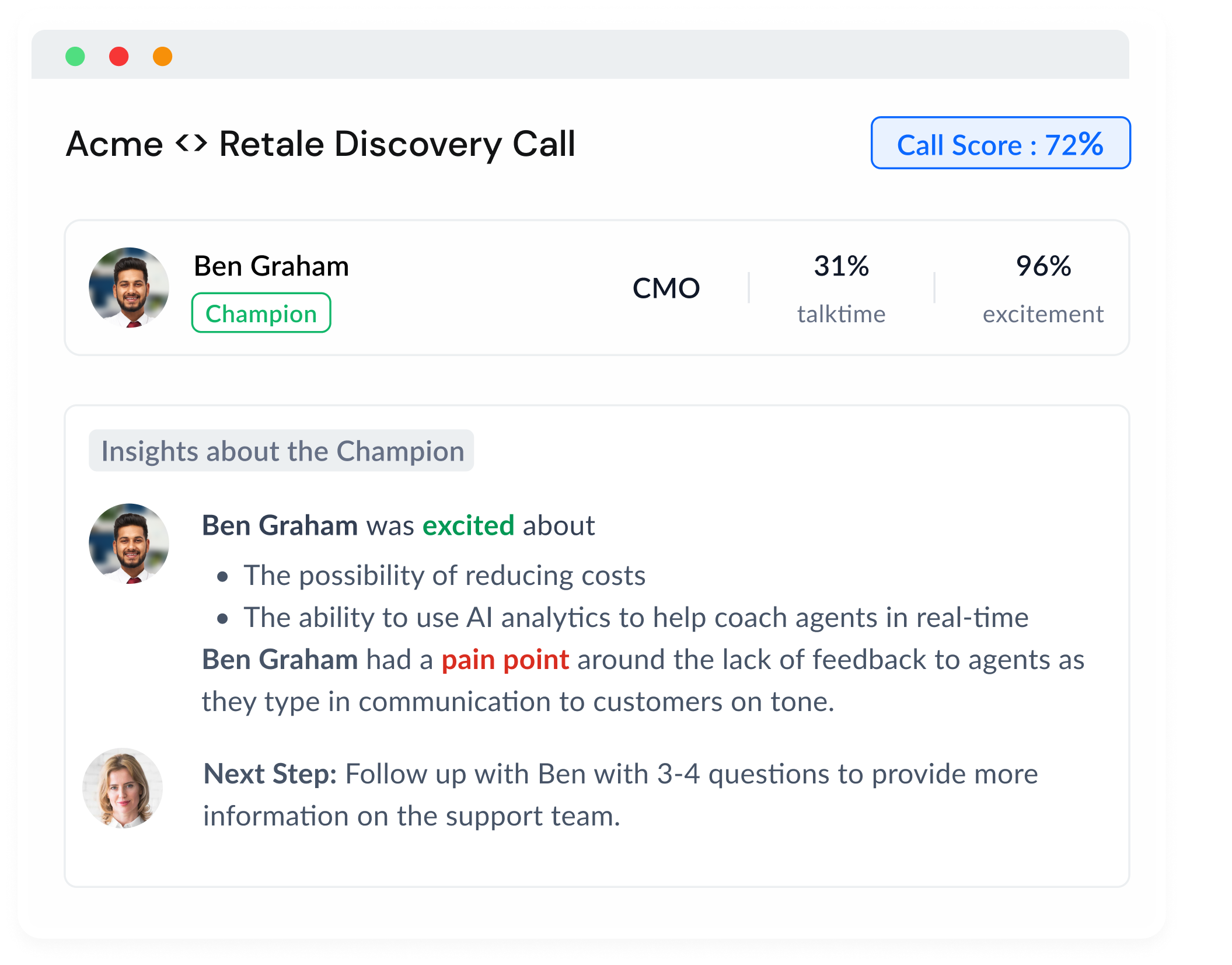When you're a seller in the SaaS world, personalizing your sales approach is essential. Salesforce, a dominant player in the CRM space, offers a powerful feature called custom fields that helps you tailor your data to your needs. And today, we're diving into the world of Salesforce custom fields to make sure you become a custom field wizard!
What Are Salesforce Custom Fields?
Salesforce custom fields are, simply put, fields that you create to store additional data that's unique to your organization. These fields can be added to standard or custom objects to capture essential information that's not available in the default field options provided by Salesforce.
Imagine you're a sales rep at Sybill (that's us!) and you want to keep track of your leads' favorite ice cream flavor (don't ask why, but it's important to you). Salesforce doesn't have a default field for that, so you'd create a custom field to store this delicious data.
The Benefits of Creating Custom Fields
Custom fields in Salesforce are more than just a cherry on top of your sales process sundae. They provide some key benefits that help streamline your data organization and improve your sales strategy:
- Personalized data: Custom fields allow you to collect and store information that's specific to your organization and industry. This level of personalization helps you better understand your customers and tailor your sales approach accordingly. For example, by tracking which features are most important to your leads, you can create targeted sales pitches and demos in future calls that focus on those key benefits.
- Enhanced reporting: With custom fields, you can create more detailed reports and dashboards that give you a deeper understanding of your sales performance. By tracking unique data sets, you'll be able to identify trends and patterns that help you make data-driven decisions.
- Improved collaboration: By capturing and storing essential data in custom fields, you ensure that your entire team has access to the information they need to work effectively. This leads to better communication, streamlined workflows, and more efficient collaboration between your sales, marketing, and customer success teams. The alternative is each seller storing such data in their own notetaking devices like EverNote or Notion, and the shared communication that’s possible is lost.
Coming up next, we will talk about using custom fields and guide you through the process of creating them in Salesforce.
When to Use Custom Fields
Now that you know the benefits of using custom fields in Salesforce, let's discuss when you should create them. It's tempting to make custom fields for all the unique info you want to track about leads and opportunities. But it's important to find a balance between customization and simplicity. Here are a few situations when creating a custom field makes sense:
- Tracking unique sales data: If you require particular details about your leads or accounts that are not found in the usual Salesforce fields, creating a custom field is the solution. For instance, if you want to keep tabs on the video conferencing software used by your lead's team, you can create a custom field to store this information. However, it may not be necessary to create a custom field for their budget as it is already a standard Salesforce field.
- Personalizing the sales process: Custom fields help you tailor your sales approach by providing insights into your leads' unique needs and preferences. You can make a special field to keep track of the main problems your potential customers have. This will help you address their concerns better when you talk to them about buying. Sybill can automatically track pain points across calls as part of the magic summaries.
- Reporting and analysis: If you need to track specific metrics or KPIs that are unique to your business, custom fields can help you collect and analyze this data. For example, you could create a custom field to track their current annual net retention rate, allowing you to identify the companies over time that best fit your sales motion along this parameter.
How to Create a Custom Field in Salesforce: A Step-By-Step Guide
Creating a custom field in Salesforce is easy as pie! Just follow these simple steps:
- Navigate to the Setup menu: Click on the gear icon in the upper-right corner of Salesforce and select "Setup."
- Open the Object Manager: In the Setup menu, use the Quick Find search box to search for "Object Manager" and select it.
- Choose the object: Select the standard or custom object where you want to create the custom field.
- Add a new custom field: Click on "Fields & Relationships" in the left sidebar, then click the "New" button.
- Select the field type: Choose the appropriate field type for your custom field, such as text, number, or picklist. Click "Next" to proceed.
- Configure the custom field: Enter a field label, field name, and any other required information. You can also add a description and help text to provide context for your team. Click "Next" when you're finished.
- Set field-level security: Choose which profiles should have access to the custom field and configure the appropriate visibility settings. Click "Next" to continue.
- Add the custom field to page layouts: Choose the page layouts where you want the custom field to appear. Click "Save" to finalize the creation of your custom field.
And there you have it! You've successfully created a custom field in Salesforce. Now you can start collecting and analyzing that sweet, sweet data and enforce best practices across the organization.
Advanced Custom Field Considerations
- Creating custom fields in Salesforce is pretty straightforward, but there are a few advanced considerations to keep in mind:
- Formula fields: You can create custom fields that automatically calculate values based on other fields or formulas. This can be useful for tracking complex metrics or KPIs without manual calculations. Check out Salesforce Formula Fields for more information.
- Validation rules: Ensure the data entered into your custom fields is accurate and consistent by setting up validation rules. These rules can help prevent errors and ensure data integrity across your Salesforce organization.
- Dependent picklists: You can create custom fields with picklists that depend on the value of another field. This can help streamline data entry and ensure the relevance of the information captured.
- Record types: If your organization has different processes for different types of records, you can create custom fields specific to each record type. This allows you to tailor the information captured for each process and maintain a clean, organized Salesforce environment.
Keep Your Salesforce Org Clean and Efficient
Adding custom fields to your Salesforce org can be valuable, but it's crucial to remember the responsibility that comes with it. Regularly review and audit your custom fields to ensure they remain relevant, useful, and efficient. Removing outdated or redundant fields can help maintain the overall health of your Salesforce environment and prevent data clutter.
If you want to learn more about Salesforce, you can check out our primer on Salesforce, or how it compares with other popular CRM systems like Hubspot, Zendesk, and Pipedrive.
Conclusion
Creating custom fields in Salesforce is a powerful way to tailor your CRM to your organization's unique needs. By using custom fields correctly and following our guide, you can fully utilize Salesforce's capabilities. Remember, a clean and efficient Salesforce org is key to maximizing your team's productivity and driving sales success.
Happy custom field creating!
PS: Adding notes to the CRM system after every sales conversation is hard. If you miss adding the notes, your manager gets frustrated during deal reviews, and you have less data to prepare before your next conversation or follow-up message.
Sybill automates this for you. It captures the essence of a call and automatically pushes call notes/summaries with the action items, interest points, and pain points of each prospect into their record. In fact, it also captures their weekend plans and pet peeves if that’s what they mentioned during the conversation - so that you can build rapport faster and keep the relationship going. Sybill integrates with Salesforce out of the box.
Check us out here!















.png)





